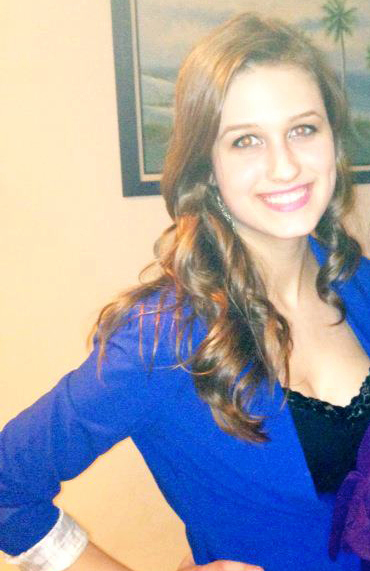We are an amalgam of qualities. We refine them, change them, and moderate them, and we do it all on a daily basis. We bring certain ones to the forefront if the situation calls for it, and other times we hold back. Humanity is fluid in this way.
Sometimes, however, we get lost in ourselves. Our own personal worlds become so small and important that we forget what else is out there. We forget that there are 7 billion other people on this planet with 7 billion other combinations of personalities and experiences and upbringings. We become the center of our own personal universe and we define our own definitive truths. We form opinions and become steadfast in them. Who can blame us? We only know of one life, one perspective.
But what’s just as important as managing our own qualities and personality traits is the ability to understand someone else’s. What’s just as important as focusing on bettering ourselves is focusing on bettering our ability to connect with others. And that’s where open-mindedness comes in.
Open-mindedness is the single most important characteristic we have as human beings. To be open-minded means to remove your personal biases and prejudices from any situation and completely immerse yourself in another experience. But open-mindedness is a muscle. Since we have been indoctrinated since birth with everything we currently know, it involves practice. You must actively place yourself in another person’s head, allowing yourself to think their thoughts and see things from their point of view. And it may not come with age. Open-mindedness takes time, energy, and patience.
Open-mindedness is important. One day, you might (no – you likely will) enter a world that forces you to question many things you’ve come to know throughout your life. When I became a college freshman two and a half years ago, I experienced this very phenomenon. For the first time, not everyone around me shared my religious beliefs, my values, my political views, my definitions of capital-R Right and capital-W Wrong. It should have been natural to assume that I would be around people who were different from me, since obviously not every single person shared my upbringing in suburban New Jersey. But for some reason, this thought didn’t cross my mind. It shocked me that the people I met did things I disagreed with and believed in things that I didn’t understand. I became angry and pejorative, and it felt awful.
Despite it all, though, I loved these people. It confused me. In high school, I was always quick to separate people into “good” and “bad” categories, into these rigid and defiant classifications that determined if I was going to like them (“good”) or not (“bad”). I was so set in my beliefs. Then, once college rolled around, the people whom I considered “good” also possessed qualities of the “bad,” and I hated myself for continuing to judge the people I loved. I felt uncomfortable all the time, ripped from my little suburban bubble, always working to silence the disapproving words that kept enveloping my thoughts. Living in my own head became exhausting. Why couldn’t I be as carefree and accepting as everyone around me? Why did I care so much about what these people are doing, listening to, engaging in? Who was I to judge someone on how they live their life? Who was I to assume that everybody had been brought up under similar influences and values as I had? Who was I to create a rigid definition of Normal, and then classify people who obscured from my own personal definition as Abnormal? Who was I?
I’m tempted to say that “I’m nobody to do this,” but the reality of the situation is that I – like every one of these people that I have met and will meet in the future – am also a person with her own beliefs and values and truths. I am somebody with my own Normal. However, the difference between High School Me and College Me is that College Me has learned how to understand where people are coming from. College Me realizes that people have grown up under a wide variety of circumstances that have influenced their choices in entertainment, movies, music, beliefs, values, and more. College Me was tired of feeling horrible for thinking such negative thoughts about her loved ones, so she worked hard to sharpen her ability to truly understand other peoples’ perspectives. At this point, College Me has been exercising her open-mindedness muscle for the past two and a half years, and is confident that you can now probably talk to her about anything in the world and she will listen attentively and openly.
Being open-minded is relaxing. Your brain doesn’t race with judgmental thoughts that make you feel guilty ten times over, and you are not aggressively working to hide a gut reaction that has been programmed into you for so long. But you must remember that an unexercised open-mindedness muscle is not your fault. It is not naivety. It is not ignorance. We are a product of our environment and of the interactions we have with people around us, so growing up in the same kind of place for our entire lives would certainly put us around the same kind of people who would influence us similarly every day. This is why it takes practice.
Open-mindedness does not mean that you must change who you are. Open-mindedness is a level of understanding that goes beyond a simple “Oh, I see.” It involves the steadiness in your tone and the patience in your demeanor. It requires asking questions, being genuinely interested in peoples’ thoughts, and accepting people for exactly who they are, differences and all. Open-mindedness doesn’t even mean that you agree with something. It means you are willing to adjust your own conclusions and take someone else’s into consideration when creating a final verdict. And, sometimes, open-mindedness means that no final verdict can ever exist. The beauty of open-mindedness is that it allows you to find out so many new things and soak in so many new perspectives. It allows you to try on many definitions of Normal until you settle into one that feels right for you – and nobody else. ![]()






